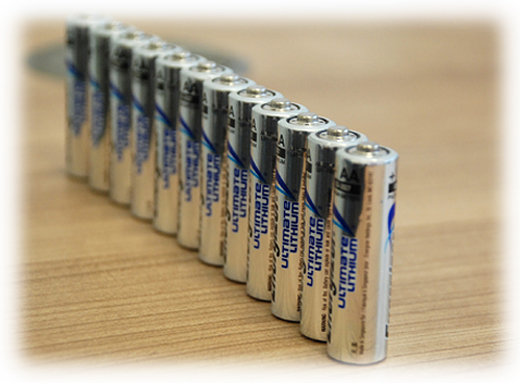Functional energy materials research lecture
 Dr Pooja Panchmatia has formed international and national collaborations that are helping to power advances in batteries.
Dr Pooja Panchmatia has formed international and national collaborations that are helping to power advances in batteries.
Mon, 17 Feb 2014 15:38:00 GMT
Public lecture on developments in “green energy technologies” by Dr Pooja Panchmatia – Wednesday 12 March
BREAKTHROUGHS in functional energy materials research hold the key to a cleaner and greener future for a whole range of applications from transportation to large scale grid facilities. There are massive gains too for medical science and even space exploration. University of Huddersfield researcher Dr Pooja Panchmatia has formed international and national collaborations that are helping to power advances in batteries. Now she delivers a free public lecture which explains the progress that is being made and what the future holds.
 Kenyan-born Dr Panchmatia specialises in the use of high performance computers to model the properties of materials. She is an early career researcher engaged in studying materials that will be the basis of the next generations of lithium ion and sodium ion batteries and fuel cells, working with fellow scientists based at the universities of Iowa in the USA, Uppsala in Sweden and Birmingham in the UK.
Kenyan-born Dr Panchmatia specialises in the use of high performance computers to model the properties of materials. She is an early career researcher engaged in studying materials that will be the basis of the next generations of lithium ion and sodium ion batteries and fuel cells, working with fellow scientists based at the universities of Iowa in the USA, Uppsala in Sweden and Birmingham in the UK.
On Wednesday 12 March, Dr Panchmatia gives a lecture entitled The Watt and How of Clean Energy: Batteries required!. It takes place at the University of Huddersfield’s Canalside West Lecture Theatre at 6.30pm. She will provide an overview of developments in “green energy technologies” with particular focus on batteries and how crucial they are to a wide range of applications.
One major area is known as “combination technology” in which batteries are combined with energy sources such as solar panels or wind turbines, due to their intermittent nature. This means that energy generated during peak hours – when the sun is shining, for example – can be stored and used when needed, usually during off-peak hours. The combination of fuel cells or solar cells with batteries is currently being used by car manufacturers for hybrid vehicles, but are being explored for a whole range of interesting applications which will be discussed in the lecture.
Recently, Dr Panchmatia has investigated the use of nano-structured materials and their potential as materials for use as lithium battery electrodes.
“Nanotechnology, as promising as it sounds is still short of fully being understood even at a fundamental level,” she says.
“Nanomaterials have tremendous benefits of high throughput which are essential if technologies are to be rolled out within the current energy grid framework, but challenges still remain in making these materials sustainable and cost-effective without compromising the efficiency and performance.”
- Dr Panchmatia’s lecture will take place in the University’s Canalside West Lecture Theatre (Room CWS/10) at 6.30pm – light refreshments will be available from 6pm in the adjacent room (CWG/01). Further information can be obtained from Janet Goodridge on 01484 472169 (janet.goodridge@hud.ac.uk).







